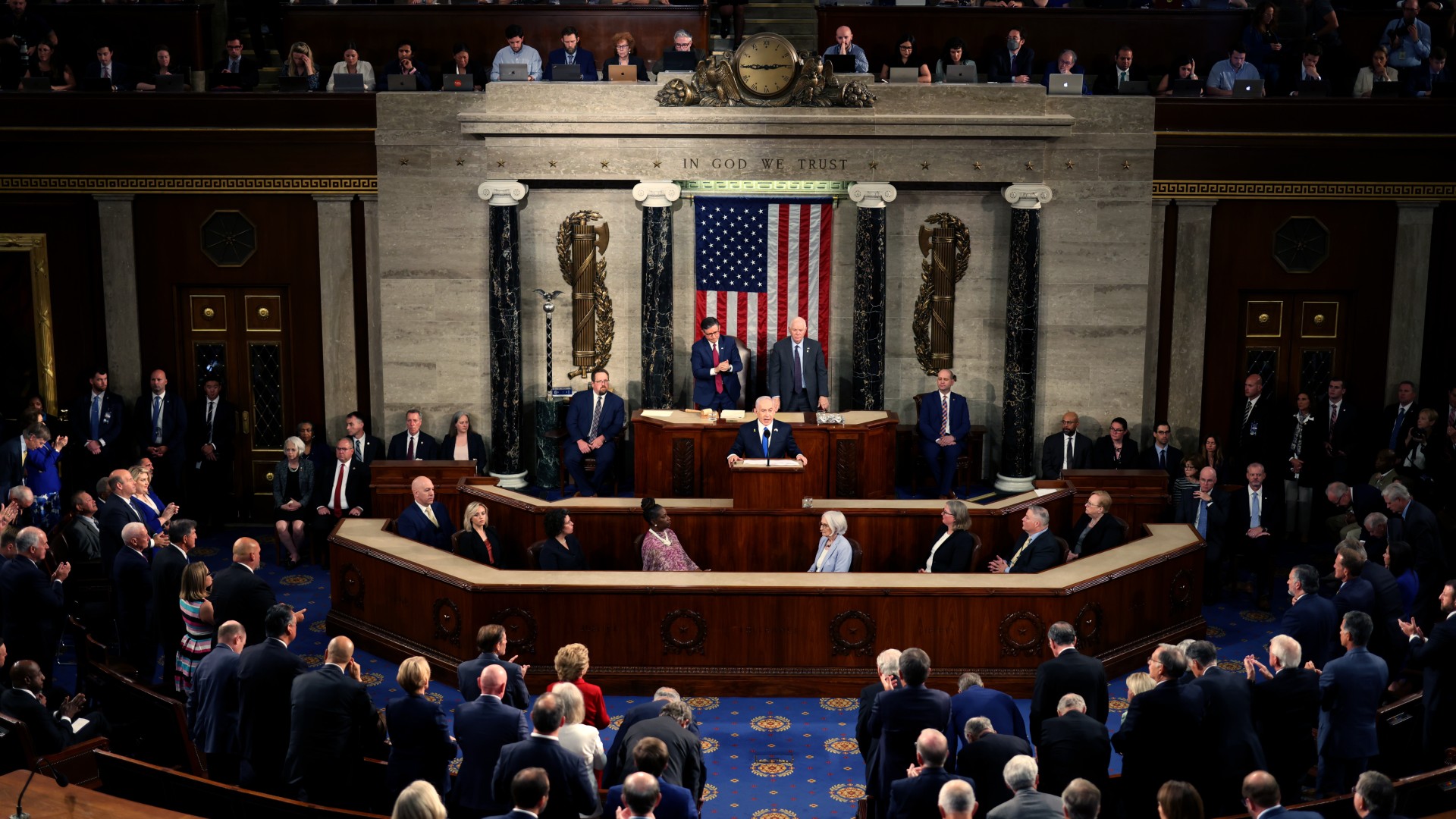Netanyahu makes controversial address
Israeli Prime Minister Benjamin Netanyahu's speech to Congress denounced Gaza war protestors


A free daily email with the biggest news stories of the day – and the best features from TheWeek.com
You are now subscribed
Your newsletter sign-up was successful
What happened
Israeli Prime Minister Benjamin Netanyahu gave a rare address to a joint session of Congress on Wednesday amid ongoing protests over Israel's war in Gaza.
Who said what
Netanyahu lauded the U.S.-Israeli relationship while lambasting the large demonstrations across Washington, D.C. over his presence. "For all we know, Iran is funding the anti-Israel protests that are going on right now, outside this building," Netanyahu said. He earned his "biggest cheers" for calling protesters "Tehran's useful idiots," The New York Times said.
Rep. Rashida Tlaib (D-Mich.), who is Palestinian American, attended Netanyahu's speech, holding a sign reading "war criminal" and "guilty of genocide." Many other high-profile Democrats, including Vice President Kamala Harris, Rep. Nancy Pelosi (D-Calif.) and Sen. Bernie Sanders (I-Vt.), were not in attendance, with "around half" of each of the Democratic caucuses "absent," said Andrew Solender at Axios.
Heading into his speech, Netanyahu had to contend with a "new balancing act, appealing to the new, potentially more progressive face of the Democratic Party while not antagonizing Trump," The Wall Street Journal said.
What next?
Despite skipping his address on Wednesday, Harris is scheduled to join President Joe Biden for a bilateral meeting with Netanyahu today. Netanyahu will then meet Donald Trump on Friday. Their once-glowing relationship has "grown tense in recent years following the 2020 election," Politico said.
The Week
Escape your echo chamber. Get the facts behind the news, plus analysis from multiple perspectives.

Sign up for The Week's Free Newsletters
From our morning news briefing to a weekly Good News Newsletter, get the best of The Week delivered directly to your inbox.
From our morning news briefing to a weekly Good News Newsletter, get the best of The Week delivered directly to your inbox.
A free daily email with the biggest news stories of the day – and the best features from TheWeek.com
Rafi Schwartz has worked as a politics writer at The Week since 2022, where he covers elections, Congress and the White House. He was previously a contributing writer with Mic focusing largely on politics, a senior writer with Splinter News, a staff writer for Fusion's news lab, and the managing editor of Heeb Magazine, a Jewish life and culture publication. Rafi's work has appeared in Rolling Stone, GOOD and The Forward, among others.
